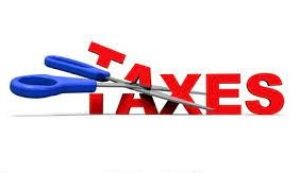Want to pay less tax?
With the end of June 2022 just 8 weeks away, it’s a timely reminder there’s only 63 sleeps before it’s too late to start thinking about strategies to reduce taxable income for the 2022 financial year.
As we’re all aware, prior to Covid, many business owners utilised the Instant Asset Write-Off to purchase equipment and cars to reduce income. With the scarcity of most business assets, minimising tax by buying equipment for your business has become more difficult.
Due to the above, we’ve provided you with other strategies that may be implemented or considered prior to 30 June 2022.
- Deferring income – A really simple strategy has always been to consider deferring income until the following financial year by way of deferring invoices.
- Reviewing debtors – Outstanding debtors should be reviewed to determine whether any are bad and can be written off prior to 30 June 2022 in order to claim a bad debt deduction.
- Prepaying expenses – Individual taxpayers not operating a business, Small Business Entities and Medium Business Entities are able to claim a tax deduction for prepayments made for an advance period of up to 12 months after end of financial year. For these taxpayers, making prepayments accelerates the timing of the tax deduction that would otherwise be ordinarily claimable in the following financial year. Prepayments can include items such as:
- prepaying rent on your business premises
- prepaying interest on your investment property
- prepaying franchise fees, insurances etc
- Maximising home office deductions – With many people still working from home after Covid there may still be the opportunity to claim home office expenses. There are 2 methods for claiming home office expenses. The first allows you to apply a set rate per hour for time you work from home. The second being actual expenses (or a percentage of).
- Maximising superannuation contributions – For the 2022 financial year, an individual taxpayer is able to make deductible concessional contributions (inclusive of employer contributions already made on their behalf) of up to $27,500. If the taxpayer has not already fully utilised the $27,500 threshold, the taxpayer could consider making additional concessional contributions to claim an additional tax deduction.
- Making catch-up superannuation contributions (if you are eligible to) – For taxpayers with a superannuation balance of under $500,000, the Federal Government recently changed the law to allow taxpayers to make additional concessional contributions beyond their $27,500 concessional contribution cap if they did not fully utilise their available concessional contribution cap in prior years commencing from the 2019 financial year. For example, a taxpayer that has only made concessional contributions of $15,000 in each of the 2020 and 2021 years could potentially use this concession to make a deductible superannuation contribution of $45,000 in the 2022 financial year.
The above are just some options available to help you minimise tax before it’s too late.
Author
Kim Jay

